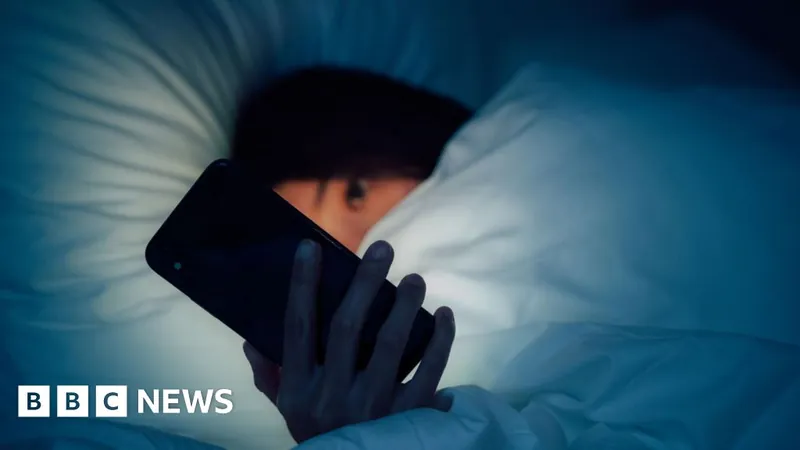
Screen Time in Bed: The Shocking Truth About Your Sleep Quality
2025-04-01
Author: Chun
Recent research has unveiled alarming findings linking screen time in bed to a significant increase in sleep disturbances. A new study involving over 45,000 Norwegian students indicates that those who indulge in extra screen time before falling asleep are 63% more likely to experience insomnia, losing an average of 24 minutes of sleep nightly.
While this study firmly establishes a correlation between screen use and poor sleep quality, researchers emphasize that further investigation is needed to determine if screen time is the direct cause of these sleep issues. The findings, published in a respected Frontiers journal, shed light on how modern habits may be sabotaging our sleep.
Dr. Gunnhild Johnsen Hjetland from the Norwegian Institute of Public Health, the study's lead author, pointed out that the total amount of screen time is a more significant factor than the type of content viewed. Both social media and other screen activities showed similar effects, indicating that the mere act of using screens could be detrimental, regardless of the context.
The survey asked participants about their screen habits in bed, including activities such as watching movies, gaming, or scrolling through social media. A startling 69% of respondents reported using social media alongside other screen activities just before bedtime. Participants also shared their experiences with sleep problems, with insomnia defined as having trouble sleeping at least three nights a week for three months or more.
Despite the strong correlation, experts caution against jumping to conclusions regarding causation. Some may argue that individuals with existing sleep disorders tend to utilize screens more frequently, creating a possible confounding factor in the study.
Sleep clinician Joshua Piper from ResMed UK highlighted the growing body of evidence suggesting that electronic device usage is stealing both the opportunity for sleep and its quality. He posits that mere adjustments in screen brightness may not mitigate the sleep disruptions caused by active engagement with devices.
Insomnia is a pressing issue, reportedly affecting up to one in three people in the UK. Experts urge people to consider effective strategies for better sleep, including avoiding screens for at least one hour before bed, establishing reliable sleeping schedules, and engaging in calming pre-sleep activities like reading or meditative practices. Avoiding caffeine, alcohol, and heavy meals before bedtime can also significantly enhance sleep quality.
Dr. Kat Lederle, a sleep therapist, recommends exposure to natural light in the mornings to help regulate our body clocks. 'It's vital to let your mind unwind from the day's stresses, possibly by enjoying low-stimulation activities.'
As the body of research on screen time and sleep continues to grow, experts call for further studies to explore the long-term effects of nighttime screen usage and how overnight notifications may disrupt rest. The quest for a good night's sleep may very well lie in taking a break from our screens and reassessing our bedtime habits.



 Brasil (PT)
Brasil (PT)
 Canada (EN)
Canada (EN)
 Chile (ES)
Chile (ES)
 Česko (CS)
Česko (CS)
 대한민국 (KO)
대한민국 (KO)
 España (ES)
España (ES)
 France (FR)
France (FR)
 Hong Kong (EN)
Hong Kong (EN)
 Italia (IT)
Italia (IT)
 日本 (JA)
日本 (JA)
 Magyarország (HU)
Magyarország (HU)
 Norge (NO)
Norge (NO)
 Polska (PL)
Polska (PL)
 Schweiz (DE)
Schweiz (DE)
 Singapore (EN)
Singapore (EN)
 Sverige (SV)
Sverige (SV)
 Suomi (FI)
Suomi (FI)
 Türkiye (TR)
Türkiye (TR)
 الإمارات العربية المتحدة (AR)
الإمارات العربية المتحدة (AR)